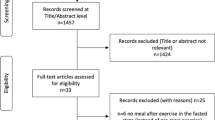Abstract
Background
The prevalence of coexisting type 2 diabetes mellitus and hypertension is increasing globally and posing significant health challenges. Effective self-management is crucial for controlling the disease and preventing complications. Telehealth education has emerged as a promising approach to enhancing self-management.
Objective
This study aimed to investigate the effects of telehealth education on glycolipid metabolism, blood pressure, and self-management in patients with coexisting type 2 diabetes mellitus and hypertension.
Methods
This study included 174 patients diagnosed with type 2 diabetes and hypertension from October 2022 to March 2023 at the 900th Hospital of the Joint Logistic Support Force of the Chinese People’s Liberation Army. The patients were randomly assigned to the control group or the telehealth education group. The control group received conventional diabetes education including diet and exercise guidance, while the telehealth education group received additional online education through the WeChatapplication. Both groups were followed up for 26 weeks and the changes in glycolipid metabolism, blood pressure, and self-management were compared between the groups.
Results
After 26 weeks of intervention, the telehealth education group showed statistically significant reductions in weight, body mass index, fasting blood glucose, 2 h postprandial blood glucose, and hemoglobin A1c compared to the control group (P < 0.05). The telehealth education group also exhibited a significant decrease in systolic blood pressure and low-density lipoprotein-C level (P < 0.05). The Summary of Diabetes Self-Care Activities score, which reflects the level of diabetes self-management, demonstrated that the telehealth education group had a significantly better total score as well as superior scores in all five sub-categories (diet, blood glucose testing, medication use, and foot care) compared to the control group (P < 0.05).
Conclusion
Our findings confirmed that telehealth education effectively enhanced the self-management capabilities of patients with coexisting type 2 diabetes and hypertension, leading to better glycolipid and blood pressure control. The use of telehealth education may potentially improve the interaction between medical staff and patients in the management of chronic diseases.

Similar content being viewed by others
Data availability
The datasets generated and/or analyzed during the current study are not publicly available but can be obtained from the corresponding author upon reasonable request.
References
Ong KL, Stafford LK, McLaughlin SA et al (2023) Global, regional, and national burden of diabetes from 1990 to 2021, with projections of prevalence to 2050: A systematic analysis for the global burden of disease study 2021. Lancet 402:203–234
Zhang M, Shi Y, Zhou B et al (2023) Prevalence, awareness, treatment, and control of hypertension in China, 2004–18: Findings from six rounds of a national survey. BMJ. https://doi.org/10.1136/bmj-2022-071952
Song J, Sheng C-S, Huang Q-F et al (2016) Management of hypertension and diabetes mellitus by cardiovascular and endocrine physicians. J Hypertens 34:1648–1653
Yang Y, Hou M, Gong X et al (2022) Quality assessment of hypertension treatment-related information on wechat: cross-sectional study. J Med Internet Res 24(10):e38567
Tang L, Dai J (2023) Follow-up effect of wechat group on discharged patients with colles fracture. Glob Chall. https://doi.org/10.1002/gch2.202300070
Mao L, Lu J, Zhang Q et al (2019) Family-based intervention for patients with type 2 diabetes via wechat in China: protocol for a randomized controlled trial. BMC Public Health. https://doi.org/10.1186/s12889-019-6702-8
Toobert DJ, Hampson SE, Glasgow RE (2000) The summary of diabetes self-care activities measure: results from 7 studies and a revised scale. Diabetes Care 23:943–950
Zhong J, Zhang H, Li Z et al (2022) Effect of social app-assisted education and support on glucose control in patients with coronary heart disease and diabetes mellitus. Front Cardiovasc Med. https://doi.org/10.3389/fcvm.2022.947130
Romadlon DS, Tu YK, Chen YC et al (2023) Comparative efficacy of digitally assisted interventions for glycated haemoglobin levels among patients with type 2 diabetes: a systematic review and component network meta-analysis. Diabetes Obes Metabol 25(11):3279–3289
Wang W, Geng L, Sun C et al (2022) Efficacy of pharmaceutical care in patients with type 2 diabetes mellitus and hypertension: a randomized controlled trial. Int J Clin Pract 2022:1–6
Valabhji J, Barron E, Gorton T et al (2022) Associations between reductions in routine care delivery and non-COVID-19-related mortality in people with diabetes in England during the COVID-19 pandemic: a population-based parallel cohort study. Lancet Diabetes Endocrinol 10:561–570
Mohseni M, Ahmadi S, Azami-Aghdash S et al (2021) Challenges of routine diabetes care during COVID-19 era: a systematic search and narrative review. Prim Care Diabetes 15:918–922
Khunti K, Aroda VR, Aschner P et al (2022) The impact of the COVID-19 pandemic on diabetes services: planning for a global recovery. Lancet Diabetes Endocrinol 10:890–900
Chan JCN, Lim L-L, Wareham NJ et al (2020) The Lancet commission on diabetes: using data to transform diabetes care and patient lives. Lancet 396:2019–2082
Phillip M, Bergenstal RM, Close KL et al (2021) The digital/virtual diabetes clinic: the future is now—recommendations from an international panel on diabetes digital technologies introduction. Diabetes Technol Ther 23:146–154
Jones MS, Goley AL, Alexander BE et al (2020) Inpatient transition to virtual care during COVID-19 pandemic. Diabetes Technol Ther 22:444–448
Sun Y-Q, Jia Y-P, Lv J-Y, Ma G-J (2020) The clinical effects of a new management mode for hypertensive patients: a randomized controlled trial. Cardiovasc Diagn Ther 10:1805–1815
Ding B, Gou B, Guan H et al (2021) WeChat-assisted dietary and exercise intervention for prevention of gestational diabetes mellitus in overweight/obese pregnant women: a two-arm randomized clinical trial. Arch Gynecol Obstet 304:609–618
Funding
This work was supported by the 900th Hospital clinical application research project (2020L04) and the Fujian Province Natural Science Foundation guided project (2020Y0079).
Author information
Authors and Affiliations
Contributions
All authors contributed to the study conception and design. HJY and LL conceived and designed the study. HJY, DMZ, and PC performed the experiments, analyzed the results, and wrote the first draft of the manuscript. XH supervised the laboratory processes. ZL and PC provided assistance with statistical analyses and writing. All authors read and approved the final manuscript.
Corresponding authors
Ethics declarations
Conflict of interest
The authors declare no conflict of interest.
Ethical approval
The study was conducted in accordance with the principles of the revised Declaration of Helsinki and was approved by the Ethics Committee of the 900th Hospital of the United Nations Logistics Base at Brindisi (2022-094). The trial was registered in ClinicalTrials.gov (registration no. ChiCTR2300068743).
Informed consent
Written informed consent was obtained from all participants.
Additional information
Publisher's Note
Springer Nature remains neutral with regard to jurisdictional claims in published maps and institutional affiliations.
Rights and permissions
Springer Nature or its licensor (e.g. a society or other partner) holds exclusive rights to this article under a publishing agreement with the author(s) or other rightsholder(s); author self-archiving of the accepted manuscript version of this article is solely governed by the terms of such publishing agreement and applicable law.
About this article
Cite this article
Ye, H., Lin, L., Zhong, D. et al. The impact of telehealth education on self-management in patients with coexisting type 2 diabetes mellitus and hypertension: a 26-week randomized controlled trial. J Endocrinol Invest (2024). https://doi.org/10.1007/s40618-024-02310-9
Received:
Accepted:
Published:
DOI: https://doi.org/10.1007/s40618-024-02310-9




